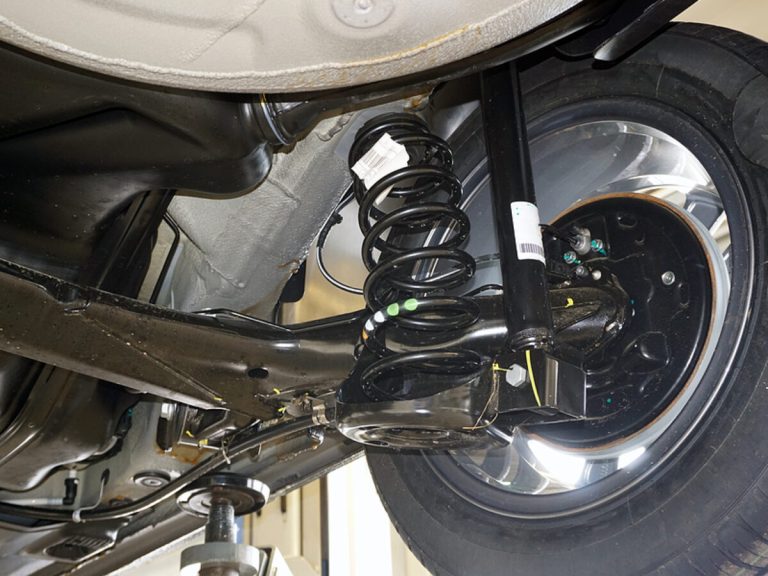Audi Q5 PHEV Electrical System Diagnosis Cost
Between $88 and $111, the average cost for an Audi Q5 PHEV Electrical System Diagnosis is between $88 and $111. Labor costs are estimated between $88 and $111. This range does not include taxes and fees, and does not factor in your unique location. Related repairs may also be needed. For a more accurate estimate based on your location, use our Fair Price Estimator below. This range does not include taxes and fees, and does not factor in your unique location. Related repairs may also be needed.
Audi Q5 PHEV Electrical System Diagnosis Cost: A Comprehensive Guide
Understanding the potential Audi Q5 PHEV electrical system diagnosis cost is crucial for any Plug-in Hybrid Electric Vehicle owner. The intricate nature of electric and hybrid systems means that diagnosing electrical faults can sometimes be more complex than with traditional internal combustion engine vehicles. This guide will delve into the factors influencing these costs, the diagnostic process itself, common warning signs, and strategies to manage expenses.
Detailed Cost Breakdown
When considering the Audi Q5 PHEV electrical system diagnosis cost, it's helpful to understand how various elements contribute to the overall price.
The Audi Q5 PHEV electrical system diagnosis cost can fluctuate significantly depending on your geographic location. Major metropolitan areas with a higher cost of living and greater demand for specialized automotive services will generally see higher labor rates. Conversely, rural areas might offer more competitive pricing, although access to highly specialized technicians for PHEV systems might be more limited.
While diagnosis itself doesn't typically involve parts, if the diagnosis reveals a faulty component, the cost of replacement parts will be added.
- OEM (Original Equipment Manufacturer) Parts: These are parts manufactured by Audi or its authorized suppliers. They are generally the most expensive but offer guaranteed compatibility and adherence to original specifications.
- Aftermarket Parts: These are manufactured by third-party companies. Quality and compatibility can vary widely, and while they are often cheaper, it's essential to choose reputable brands, especially for critical electrical components in a PHEV.
- OEM (Original Equipment Manufacturer) Parts: These are parts manufactured by Audi or its authorized suppliers. They are generally the most expensive but offer guaranteed compatibility and adherence to original specifications.
- Aftermarket Parts: These are manufactured by third-party companies. Quality and compatibility can vary widely, and while they are often cheaper, it's essential to choose reputable brands, especially for critical electrical components in a PHEV.
Factors Affecting Cost
Several factors can influence the final Audi Q5 PHEV electrical system diagnosis cost.
Higher mileage vehicles may have more wear and tear on electrical components, potentially leading to more complex issues that require extended diagnostic time. However, the diagnosis cost itself is usually based on the time and expertise required, rather than a direct mileage-based fee.
As mentioned earlier, your geographical location plays a significant role in labor rates and the availability of specialized technicians, directly impacting the overall cost.
Often, the diagnosis of an electrical issue might uncover other related problems. For example, corroded connectors could indicate a broader issue with wiring harness integrity, or a failing battery management system might also point to other battery-related concerns. These additional repairs will, of course, increase the total cost.
While less common for diagnostic services compared to routine maintenance, some repair shops might experience higher demand during certain periods (e.g., before major holidays), potentially leading to slight variations in pricing or longer wait times.
Diagnostic & Repair Process
Understanding how electrical issues are diagnosed in your Audi Q5 PHEV can shed light on why the Audi Q5 PHEV electrical system diagnosis cost is what it is.
Electrical system issues are diagnosed through often painstaking and rigorous testing. Especially when it comes to intermittent electrical issues, electrical issues are seldom easy to solve, and they often require testing the entire electrical circuit involved. Technicians rely on years of experience and classroom training to understand automotive electrical systems and computerized controls. They may use multi-meters, factory diagnostic software, test lights, resistors, external power sources, and many other specialty tools in order to find the cause of an electrical issue. For a PHEV like the Q5, this includes specialized high-voltage system diagnostics and software specific to the hybrid powertrain.
Correcting electrical issues may require a variety of procedures, but commonly the battery will be disconnected, obstructing trim will be removed, and the faulty wiring or components will be separated from the main wiring harness to be replaced. Often it is necessary to remove corrosion and dirt from connectors in order to establish a good connection, and testing once the repair is complete is mandatory. Electrical problems can be located in any part of the vehicle, and significant disassembly may be required in order to facilitate repairs. This is particularly true for PHEVs, where high-voltage battery systems and their associated wiring are complex and require careful handling.
We recommend seeing a professional when electrical issues arise, especially if it is not abundantly clear what is causing the failure. In many cases, intermittent electrical issues will need to see an automotive electrician or diagnostic specialist, so bringing a complicated to any non-certified mechanic is not likely a good course of action. For PHEVs, seeking out a technician with specific training in high-voltage systems is paramount for safety and accuracy.
Many vehicles with difficult electrical issues may need a diagnostic specialist to identify the cause. Many repair facilities would rather send the vehicle to a specialist than spend copious amounts of shop hours or customer costs on an issue that will require extensive diagnosis. There are specialty diagnostics shops that solve these problems regularly, and the most likely problem type is an intermittent electrical issue. This often manifests as warning lights that appear and disappear, or systems that work intermittently.
Electrical repair beyond fuses, obvious wire damage, dirty connectors, and bad relays should be left to a professional. These systems are highly complex, and technicians spend years in classroom and hands-on training to learn the skills necessary to accurately and properly diagnose an electrical issue on modern vehicles. Also, understanding of electrical circuit diagrams and components function is required in many cases, and should not be attempted without specific electrical systems training. Working on the high-voltage system of a PHEV without proper training and safety precautions is extremely dangerous and can lead to severe injury or death.
Warning Signs & Symptoms
Recognizing the early warning signs of electrical issues in your Audi Q5 PHEV can save you from more significant problems and costs down the line.
- OEM (Original Equipment Manufacturer) Parts: These are parts manufactured by Audi or its authorized suppliers. They are generally the most expensive but offer guaranteed compatibility and adherence to original specifications.
- Aftermarket Parts: These are manufactured by third-party companies. Quality and compatibility can vary widely, and while they are often cheaper, it's essential to choose reputable brands, especially for critical electrical components in a PHEV.
- OEM (Original Equipment Manufacturer) Parts: These are parts manufactured by Audi or its authorized suppliers. They are generally the most expensive but offer guaranteed compatibility and adherence to original specifications.
- Aftermarket Parts: These are manufactured by third-party companies. Quality and compatibility can vary widely, and while they are often cheaper, it's essential to choose reputable brands, especially for critical electrical components in a PHEV.
The most obvious indicators are dashboard warning lights. These can range from general electrical system warnings to specific alerts related to the hybrid system, battery, or engine. Always consult your owner's manual for the specific meaning of any illuminated warning light.
- OEM (Original Equipment Manufacturer) Parts: These are parts manufactured by Audi or its authorized suppliers. They are generally the most expensive but offer guaranteed compatibility and adherence to original specifications.
- Aftermarket Parts: These are manufactured by third-party companies. Quality and compatibility can vary widely, and while they are often cheaper, it's essential to choose reputable brands, especially for critical electrical components in a PHEV.
Cost-Saving Strategies
Managing the Audi Q5 PHEV electrical system diagnosis cost effectively involves a proactive approach.
Before committing to a repair, obtain diagnostic quotes from at least two reputable service centers, preferably one dealership and one independent specialist. This allows you to compare pricing and understand the scope of the recommended work.
If the issue is not critical, consider scheduling repairs during off-peak times, which might sometimes yield slightly better pricing or appointment availability. However, never delay essential repairs for safety or drivability concerns.
Check if your Audi Q5 PHEV is still under its manufacturer warranty, especially the hybrid component warranty, which is often longer than the standard vehicle warranty. Many electrical issues, if covered, can be repaired at no cost to you. Also, investigate if you have any extended warranty or service contracts that might cover diagnostic and repair costs.
For most electrical system diagnosis and repair on a PHEV, DIY is not recommended due to the complexity and high-voltage risks. Stick to basic checks like ensuring battery terminals are clean and tight, and fuses are intact. Leave anything beyond that to the professionals.
FAQ Section
- OEM (Original Equipment Manufacturer) Parts: These are parts manufactured by Audi or its authorized suppliers. They are generally the most expensive but offer guaranteed compatibility and adherence to original specifications.
- Aftermarket Parts: These are manufactured by third-party companies. Quality and compatibility can vary widely, and while they are often cheaper, it's essential to choose reputable brands, especially for critical electrical components in a PHEV.
How much does Audi Q5 PHEV electrical system diagnosis cost?
The average cost for an Audi Q5 PHEV electrical system diagnosis is between $88 and $111, with labor costs also estimated between $88 and $111. This range is an estimate and can vary based on location, shop, and the complexity of the issue.
Can I drive with this problem?
Whether you can drive with an electrical problem depends entirely on the nature and severity of the issue. Minor glitches might not affect drivability, but warnings related to the hybrid system, battery, or braking should be addressed immediately. If you notice a significant change in performance or see critical warning lights, it's best to avoid driving and have the vehicle towed.
How long does Audi Q5 PHEV electrical system diagnosis take?
The time it takes for an electrical system diagnosis can vary greatly. Simple issues might be identified within an hour or two, while complex or intermittent problems could take several hours or even a full day of diagnostic work. The technician will likely provide an estimated timeframe after an initial assessment.
What causes this issue?
Electrical issues in any vehicle, including the Audi Q5 PHEV, can be caused by a multitude of factors. These include worn or damaged wiring, faulty sensors, failing control modules, corroded connectors, issues with the charging system, problems with the high-voltage battery management system, or even software glitches. Diagnosing the precise cause requires specialized tools and expertise.
When facing electrical concerns with your Audi Q5 PHEV, remember that a thorough diagnosis is the first step to an accurate and effective repair. By understanding the potential costs and factors involved, you can approach the situation with confidence and ensure your vehicle receives the specialized care it needs.

